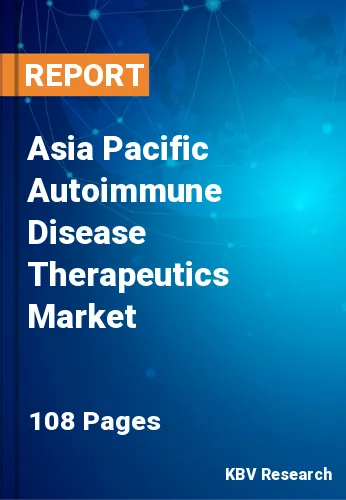The Asia Pacific Autoimmune Disease Therapeutics Market would witness market growth of 5.72% CAGR during the forecast period (2019-2025).
Autoimmune diseases can be understood as disorders in which the immune system erroneously attacks the patient's body. In the usual scenario, however, the immune system protects against germs such as bacteria and viruses by sending out an army of fighter cells to attack them when it senses these foreign invaders.
Asia-Pacific offers profitable expansion opportunities for main players working on the therapeutic market for autoimmune disease due to the large population base, increased buying power, increased autoimmune disease incidence, and increased demand for advanced autoimmune disease therapeutics. Growth in the number of aging populations and increased early detection of the disease with increased healthcare spending are anticipated to boost growth in this region's market for autoimmune disease therapeutics.
Based on Indication, the market is segmented into Rheumatic Disease, Diabetes, Multiple Sclerosis, Inflammatory Bowel Disease, and Other Indications. Based on Drug Class, the market is segmented into Anti-Inflammatory, Anti-Hyperglycemics, NSAIDs (Nonsteroidal anti-inflammatory drugs), Interferons and Other Drugs. Based on the Distribution Channel, the market is segmented into Hospital Pharmacy, Online and Retail Pharmacies & Drug Stores. Based on countries, the market is segmented into China, Japan, India, South Korea, Singapore, Malaysia, and Rest of Asia Pacific.
The market research report covers the analysis of key stake holders of the market. Key companies profiled in the report include ABBOTT Laboratories, Bio-Rad Laboratories, Inc., Johnson and Johnson, GlaxoSmithKline PLC (GSK), Pfizer, Inc., Merck & Co., Inc., Bayer AG, AbbVie, Inc., Amgen, Inc. and Novartis AG.
Market Segmentation:
By Indication
By Drug Class
By Distribution Channel
By Country
Companies Profiled
Our team of dedicated experts can provide you with attractive expansion opportunities for your business.

